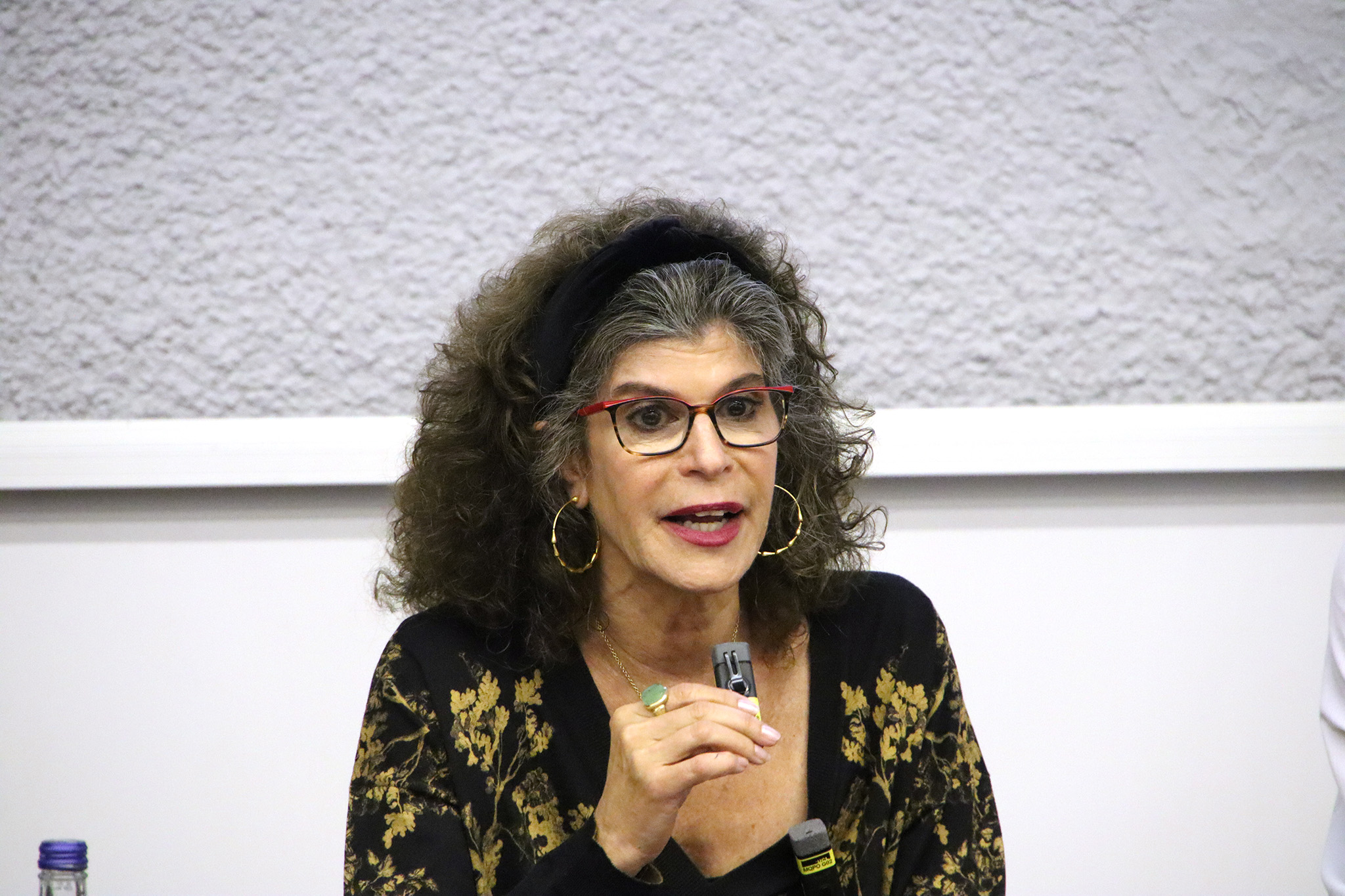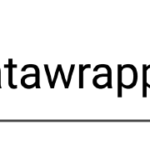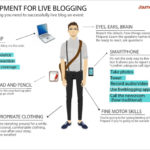If you’re in any way involved with digital culture (which essentially means all of us), you really need to read Shoshana Zuboff’s The Age of Surveillance Capitalism: The Fight for a Human Future at the New Frontier of Power. I’ve been evangelising its importance for a while to all my colleagues and students at City, University of London, and anyone else who will listen, even people on the London Underground. The book is definitely gaining some traction. Harvard economics professor Zuboff came to University College London in September to present her work. The event was so popular they had to upgrade to a bigger venue and there was still a waiting list. The lecture hall was packed, and cultural impresario Brian Eno (an Advisory Board member of the UCL Institute for Innovation and Public Purpose hosting the talk) was lurking quietly at the back.
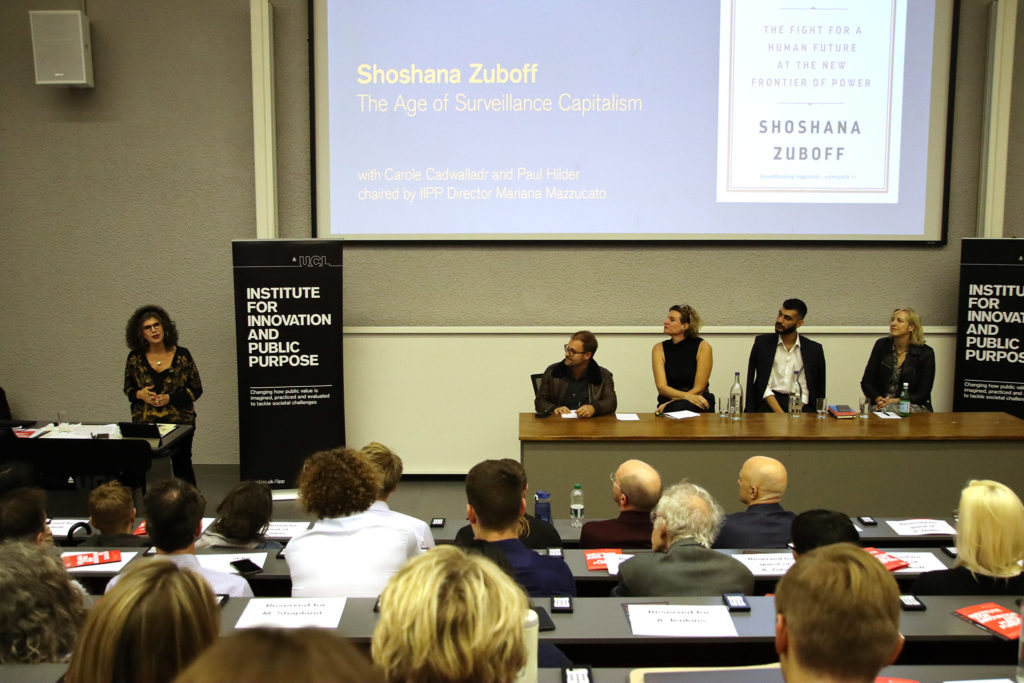
For those who don’t know anything about The Age of Surveillance Capitalism, the book presents a warning to the world about where we have arrived in the age of social media, online search, and the digitalisation of everything. From the breathless expectancy of the early 1990s, through the dotcom crash, to the rose-tinted arrival of Web 2.0, digital online culture once felt like a positive, democratising force. But over the last couple of years it has developed into something much more “toxic”, and potentially very negative for our traditional human freedoms and democracy.
Zuboff’s seminal book sums up in great detail where we have got to now, and it’s very scary indeed. Parts of our lives that we considered private are increasingly being invaded by global digital megacorporations such as Google and Facebook, so that they can collect data about our behaviour. This is then used to predict our actions and even nudge that activity in the direction desired by any companies willing to pay for the service. This isn’t just about the parallel lives we lead online anymore, either. Zuboff argues that the arrival of Internet of Things devices is moving the collection of data into the physical world as well. She goes into great detail about the Pokemon Go phenomenon of a few years ago, and how it has surreptitiously been herding users towards the businesses of those willing to pay, who can then sell their wares to the players.
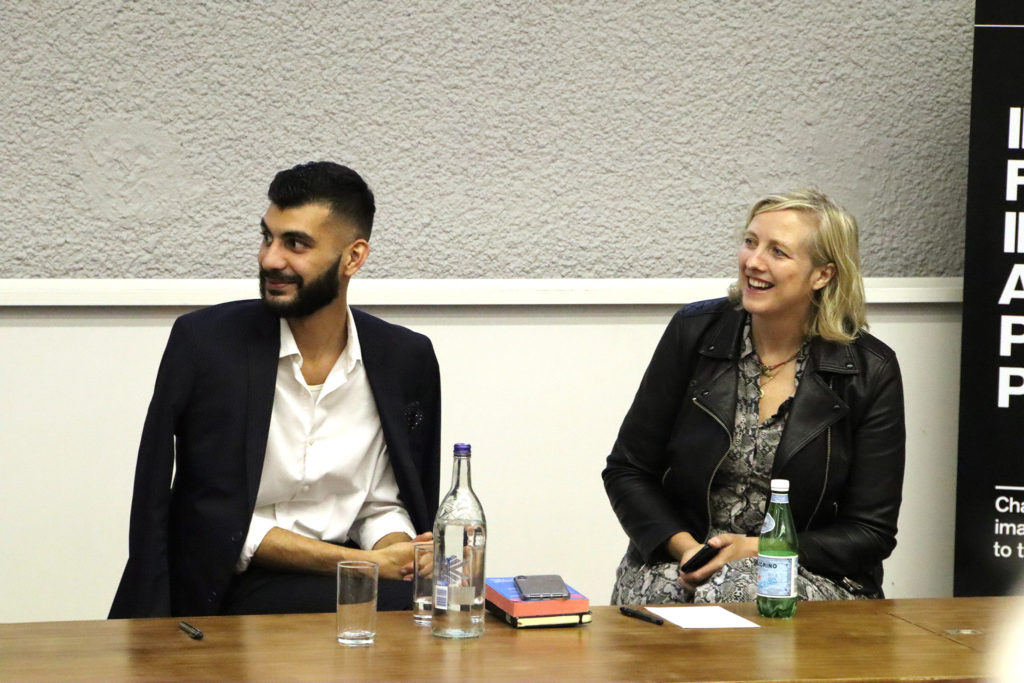
All of these trends make up what Zuboff calls “surveillance capitalism”, a new economic formation for the 21st century that supersedes the consumer-focused type of capitalism that characterised most of the 20th century. In this formulation, the locus of economic power has shifted away from giving consumers what they want and are willing to pay for, towards getting right inside their heads so that they can be manipulated to purchase whatever fee-paying organisations want. The most worrying thing here is when those fee-paying organisations are politically motivated, or even political parties. The Cambridge Analytica controversy during the Brexit Referendum is the obvious precursor here (which was why journalist Carole Cadwalladr and whistleblower Shahmir Sanni were on the panel at the UCL event). Think of it as a trial run for political manipulation to come.
Zuboff’s oft-repeated mantra in her book is “Who knows? Who decides? Who decides who decides?” Here’s she’s talking about the knowledge that the digital companies of surveillance capitalism are amassing about us. First of all, we don’t really know what they know about us, despite all the privacy settings their platforms may offer. We can deny every single sharing setting in Facebook or use Incognito mode in Google’s Chrome, and they could still be collecting data – but we won’t know what or how much. This is the second part of Zuboff’s mantra – that the digital companies are not letting us decide what data we share with them. They are the ones deciding what data is being collected about us. They are also making the decision that this is their choice, not ours – they decide who decides. The agency and will of the individual has been totally usurped by the intentions of the digital corporation.
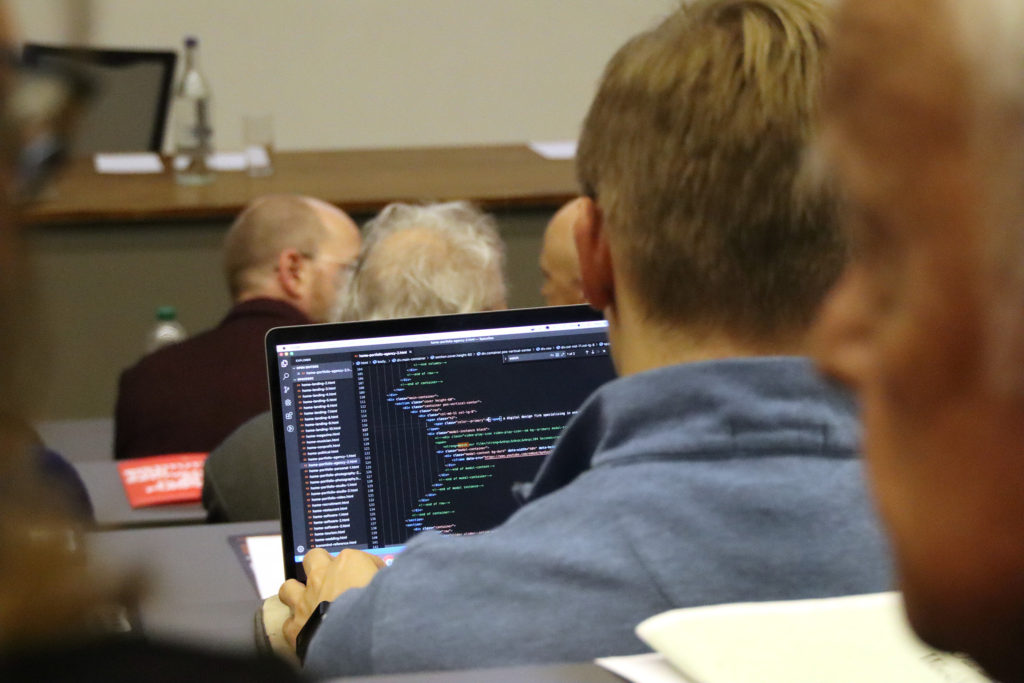
The most worrying aspect of all here is that we have sleepwalked into this situation (the historical stages of which Zuboff describes in meticulous detail in her book). It’s now completely normal for us to give up our privacy and our data to umpteen digital companies in return for services that are allegedly “free” (but, as Jaron Lanier has said, in that case you are the product). We don’t even realise what we have given up. I can’t help drawing parallels here with Michel Foucault’s analyses of how knowledge discourses encode power into our culture and society as norms. He was talking about areas like medicine, mental health, sexuality and social science studies. But now that discourse is our self-absorption-fuelled life on social media. Our culture of oversharing is the discourse that delivers untold riches of knowledge that feed the power of surveillance capitalism.
In her talk at UCL, however, Zuboff ended on a positive note, and she’s right. At least now we know this is happening. If she can pack a large lecture theatre at UCL, people are starting to pay attention to her analysis of what is going on too. Maybe we don’t have a solution to the problem yet, but we’re becoming increasingly aware that it exists and how it operates at the conceptual level. The next stage is to begin figuring out what we can do about it, and that’s going to take another herculean leap of research and activism. But for this we will need strong minds and a clear political will towards change. Can we do it? First we need to read her book
Related Posts

